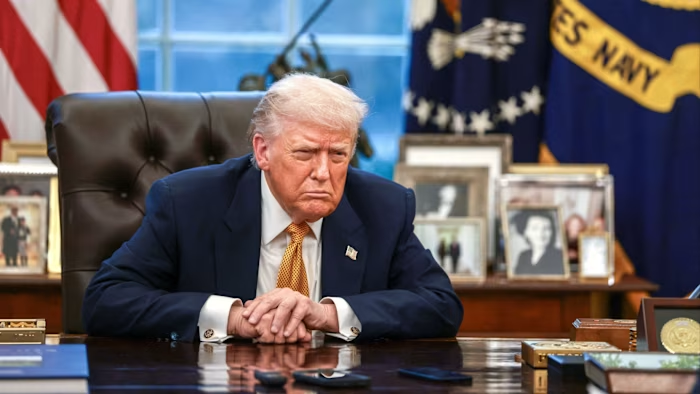- Pakistan-Saudi-Turkey defence deal in pipeline, Pakistani minister says Reuters
- Pakistan-Saudi-Turkiye defence deal in pipeline, defence production minister confirms Dawn
- Turkey Said to Seek Membership of Saudi-Pakistan Defense Pact
Category: 2. World
-
Pakistan-Saudi-Turkey defence deal in pipeline, Pakistani minister says – Reuters
-
Pakistan says it backs Gaza peace plan, hopes next phase leads to Palestinian state – Arab News
- Pakistan says it backs Gaza peace plan, hopes next phase leads to Palestinian state Arab News
- Scepticism and hope: Gaza reacts to Trump’s ‘Board of Peace’ Al Jazeera
- Who is Ali Shaath, Palestinian chosen by Trump to lead Gaza Dawn
- US…
Continue Reading
-

Greenland’s defence is ‘common concern’ for Nato, Danish PM says as European troops fly in | Greenland
The Danish prime minister, Mette Frederiksen, said Greenland’s defence was a “common concern” for the whole of Nato, as troops started arriving from across Europe as a result of Donald Trump’s threats to take the Arctic island by force.
Continue Reading
-
Macron convenes emergency meeting to discuss Greenland, Iran – Reuters
- Macron convenes emergency meeting to discuss Greenland, Iran Reuters
- European troops arrive in Greenland as talks with US hit wall over future Al Jazeera
- NATO nations deploy to Greenland after tense White House talks CNBC
- Danish PM says US…
Continue Reading
-
Iran Averts US Strikes for Now With Vow to Avoid Executions – Bloomberg
- Iran Averts US Strikes for Now With Vow to Avoid Executions Bloomberg
- Iran’s FM says no executions of protesters, as Trump lowers rhetoric Al Jazeera
- Iran warns of ‘decisive response’ to any military aggression at UNSC The Express Tribune
Continue Reading
-

Arab governments believe US-Iran tension ‘de-escalated’
Unlock the White House Watch newsletter for free
Your guide to what Trump’s second term means for Washington, business and the world
Intense diplomatic efforts to dissuade Donald Trump from striking Iran, including communication between the…
Continue Reading
-
Gold steadies as investors keep wary eye on Greenland, Iran – Reuters
- Gold steadies as investors keep wary eye on Greenland, Iran Reuters
- Denmark warns of ‘fundamental disagreement’ after White House talks on Greenland BBC
- Trump reiterates desire for Greenland following high-stakes meeting Dawn
- US senators…
Continue Reading
-
Trump sees Iranian crackdown easing, Tehran denies man to be executed – Reuters
- Trump sees Iranian crackdown easing, Tehran denies man to be executed Reuters
- Trump says killings in Iran have stopped; Tehran reopens airspace after temporary closure Dawn
- Inside Trump’s ‘crazy world’ of milk bottles, sled dogs and threats…
Continue Reading
-
Two dead in Thailand after another crane collapses, crushing cars – Reuters
- Two dead in Thailand after another crane collapses, crushing cars Reuters
- Footage shows US military seizing sixth oil tanker accused of defying sanctions BBC
- 32 killed after crane falls on train in Thailand Dawn
- At least 25 dead after…
Continue Reading
-
Iran temporarily closes airspace with US attack ‘imminent’
Iran temporarily closed its airspace early on Thursday morning, issuing a NOTAM (Notice to Airmen) to all flights except international ones to and from Iran with official permission, as Western military officials say US military action in the…
Continue Reading